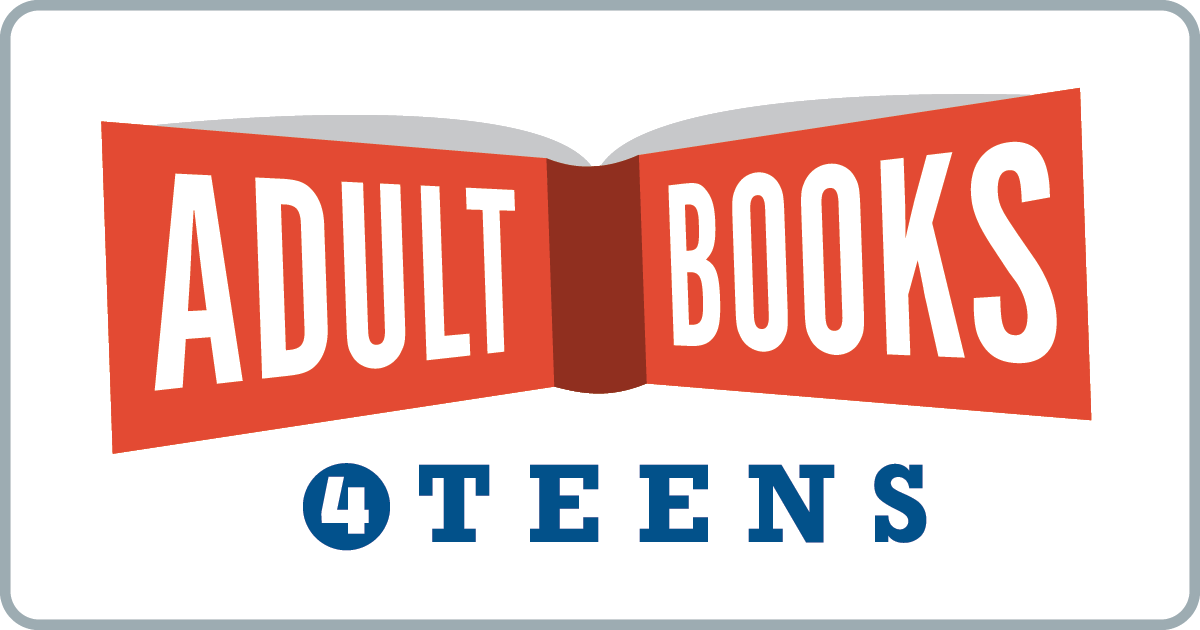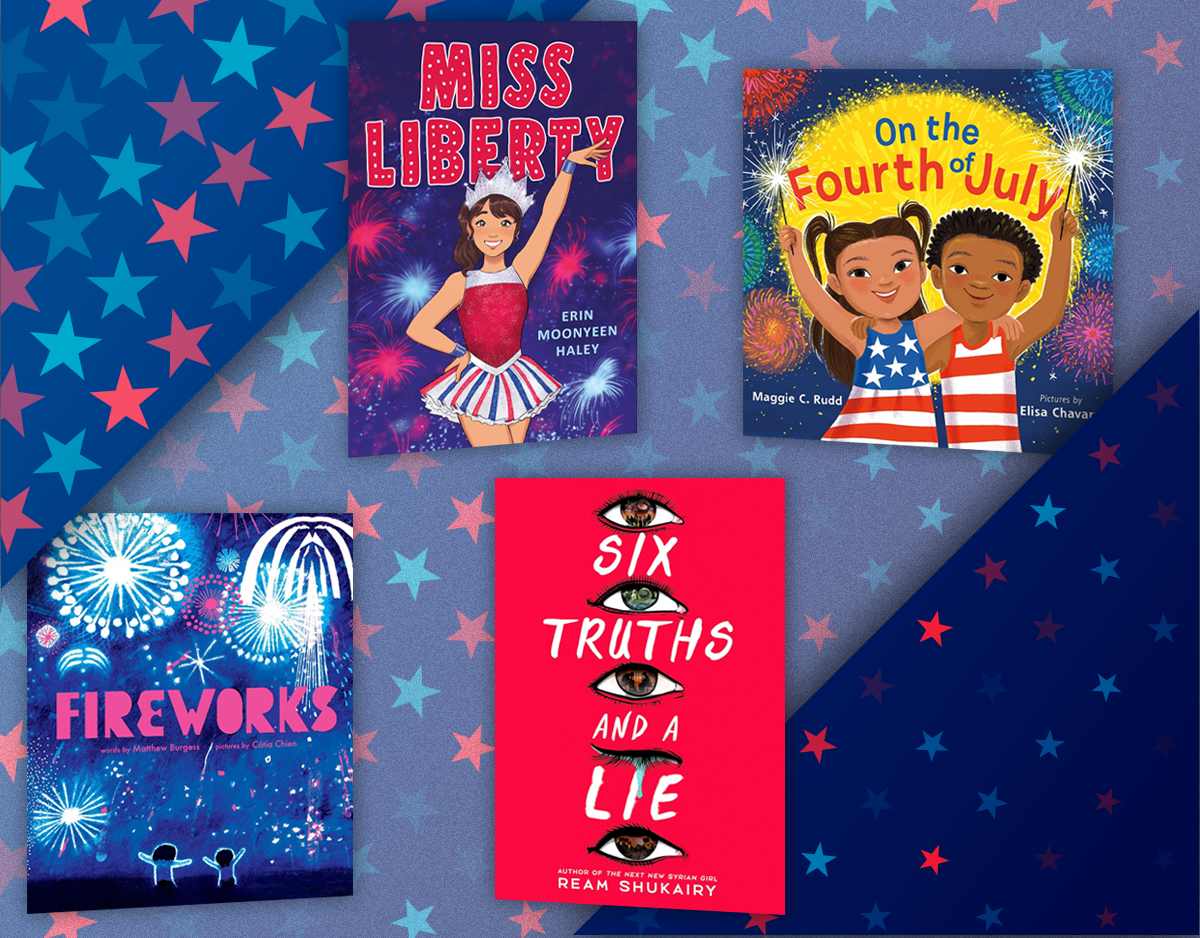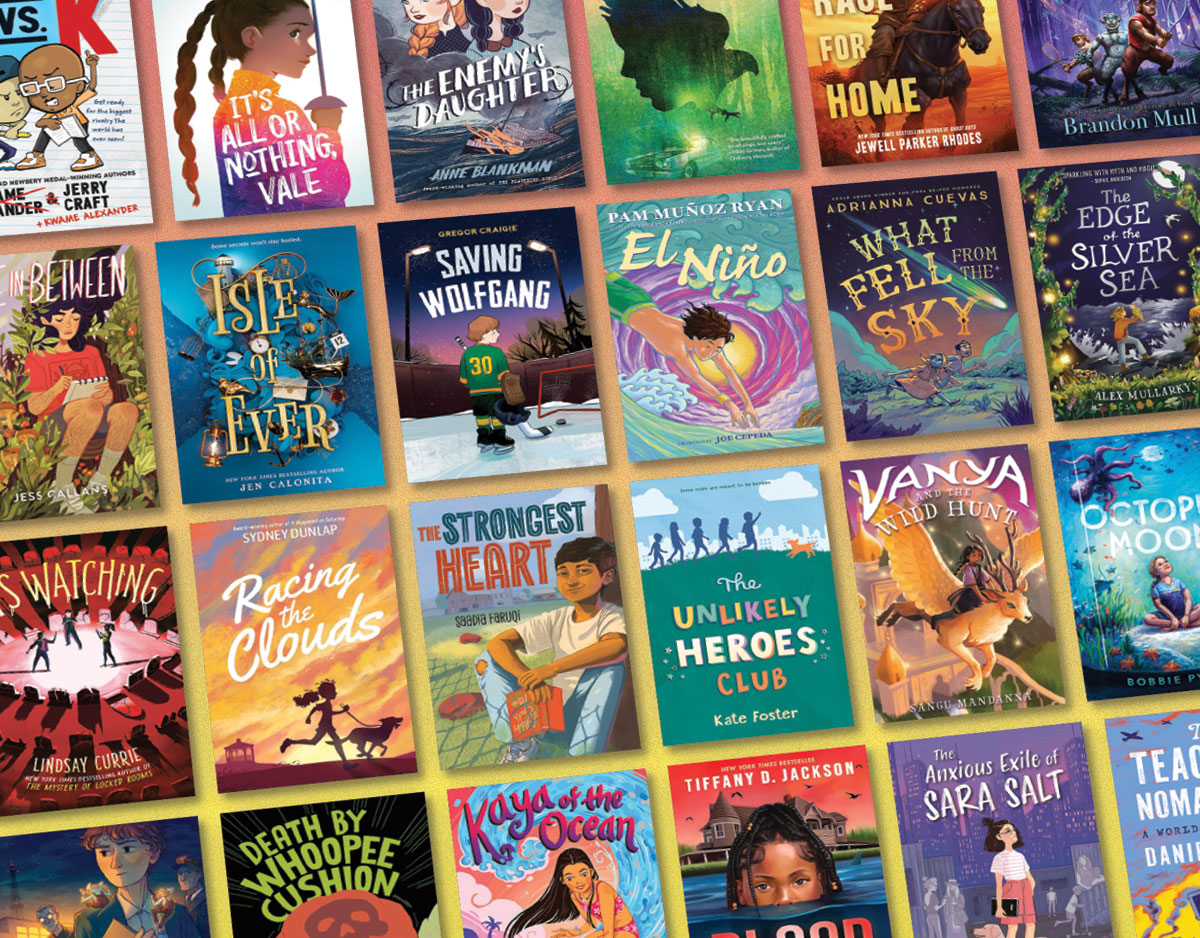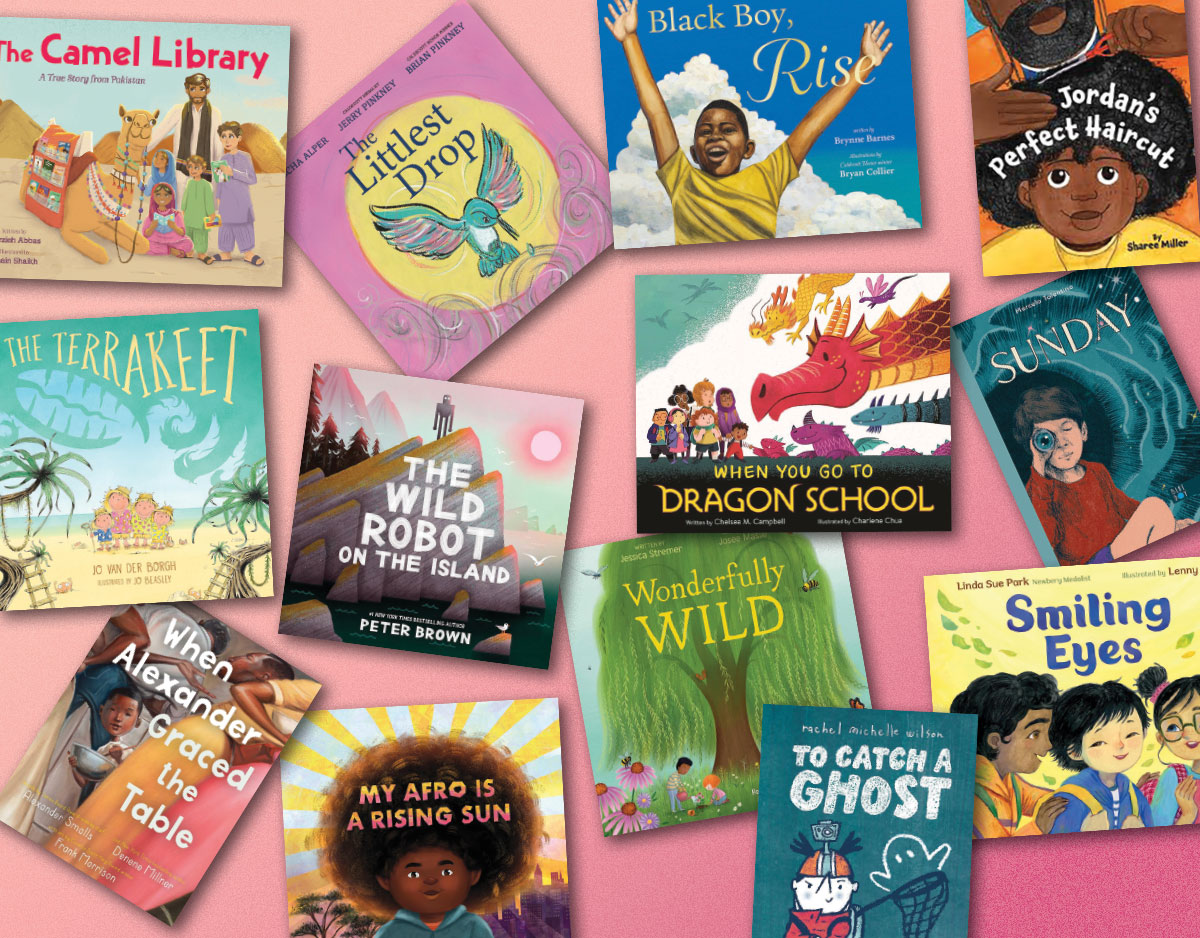SCROLL DOWN TO READ THE POST
National Poetry Month
April is National Poetry Month, and unlike short stories, poetry is one form of literature that I, at least, have never had trouble getting teens interested in. Every April (except this one–my library is doing some construction) I try to hold at least one poetry event–an open mic, or a poetry slam–and they tend to be very well attended. Indeed, there seems to be a strong cadre of teens who are very devoted to poetry–sometimes more excited about writing it than reading it, but still devoted.
Given that there’s a built in audience for poetry, it can be surprisingly hard to find the right new poetry collections to recommend to teens, and far too easy to hand them old standbys like Angelou, Hughes, or Frost. So I’m excited to offer up a couple of new-ish collections that should have great teen appeal.
ADVERTISEMENT
ADVERTISEMENT
First up is Gerald Stern’s In Beauty Bright, which came out last year. Stern is an old-timer (born in 1925!), and this is his 18th full-length poetry collection, but he still has plenty to offer to the young–including recollections of his time in New York as a young man, and a still very fresh approach to his verse.
Mitchell L.H. Douglas, meanwhile, is a relative new-comer. His new collection, whose title should be properly rendered \ˈblak\\ˈal-fǝ ˌbet\ is only his second, and it is a major statement: at once looking backwards at his roots and forwards at new ways of expressing himself. Offer this book to anyone you were thinking about handing an Angelou or Hughes collection.
STERN, Gerald. In Beauty Bright. 128p. W.W. Norton. 2012. Tr $25.95. ISBN 9780393086447.
 Adult/High School–The 18th collection of Stern’s work is entertaining, easily read, and puzzling. One can sense a rascal with a good sense of humor behind the artful words on the page. Some of the poems are set in New York City, where he lived in his 20s, and some in Pittsburgh, where he grew up the son of Eastern European immigrants. In “Kafeteria,” Stern remembers the New York of his youth, “I touched everything touchable and stopped/in front of a dummy I had fallen in love with/and kried myself silly over her helplessness/an hour or so before my maiden speech/just north of Fourth where through the books I wandered/.” The narratives of his poems are not complete, but most readers will follow the stories and enjoy being confused and wonder why he selected the topic he did. Some are surrealistic but somehow one understands. In “Lowness,” he writes about a car: “It was me who took a small white Fiat/out of my briefcase to let it breathe and after/a second started it by gathering speed/with my left foot and hopping into the seat and/ giving it gas, as I remember.”–Karlan Sick, Library Consultant, New York City
Adult/High School–The 18th collection of Stern’s work is entertaining, easily read, and puzzling. One can sense a rascal with a good sense of humor behind the artful words on the page. Some of the poems are set in New York City, where he lived in his 20s, and some in Pittsburgh, where he grew up the son of Eastern European immigrants. In “Kafeteria,” Stern remembers the New York of his youth, “I touched everything touchable and stopped/in front of a dummy I had fallen in love with/and kried myself silly over her helplessness/an hour or so before my maiden speech/just north of Fourth where through the books I wandered/.” The narratives of his poems are not complete, but most readers will follow the stories and enjoy being confused and wonder why he selected the topic he did. Some are surrealistic but somehow one understands. In “Lowness,” he writes about a car: “It was me who took a small white Fiat/out of my briefcase to let it breathe and after/a second started it by gathering speed/with my left foot and hopping into the seat and/ giving it gas, as I remember.”–Karlan Sick, Library Consultant, New York City
DOUGLAS, Mitchell L.H. \blak\ \al-fe bet\: Poems. 80p. Persea. Feb. 2013. pap. $15.00. ISBN 9780892554218.
 Adult/High School–Given the title and Douglas’s claim to have invented a new verse form called a “fret”, readers may be forgiven for expecting a more formally adventurous collection. Instead, the fret turns out to be a fairly simple acrostic–using the notes of the six guitar strings as each line’s first letter, with a simple vertical caesura to denote the guitar’s frets–and in the end Douglas only supplies three examples. Nevertheless, the poet has no need to resort to formal tricks when he has such a rich topic and strong command of his free verse. He sets out to tell the stories of his sharecropping grandparents, in four sections. The first and last sections act as brackets, telling the story more-or-less straight. The third section, meanwhile, directly confronts the collection’s place within Black literature, citing contemporaries such as Debra Kang Dean and Marilyn Nelson. But it is in the crucial second section that Douglas truly shines, as he builds on the story’s musical references (in the author’s note he mentions sharecropping blues guitarists like Son House), creating “alternate takes” and variations, larding his vocabulary with musical terms and introducing the fret. He prepares for these musical musings in the title and opening lines (and, indeed, the collections best lines) to the first section’s penultimate poem: “Al Green Was a Preacher/before he was a pastor–/let me explain. If you can’t find/a sermon in ‘Love & Happiness,’/something’s wrong.” And if you can’t find the music in Douglas’s sermons, something’s equally wrong.–Mark Flowers, John F. Kennedy Library, Vallejo, CA
Adult/High School–Given the title and Douglas’s claim to have invented a new verse form called a “fret”, readers may be forgiven for expecting a more formally adventurous collection. Instead, the fret turns out to be a fairly simple acrostic–using the notes of the six guitar strings as each line’s first letter, with a simple vertical caesura to denote the guitar’s frets–and in the end Douglas only supplies three examples. Nevertheless, the poet has no need to resort to formal tricks when he has such a rich topic and strong command of his free verse. He sets out to tell the stories of his sharecropping grandparents, in four sections. The first and last sections act as brackets, telling the story more-or-less straight. The third section, meanwhile, directly confronts the collection’s place within Black literature, citing contemporaries such as Debra Kang Dean and Marilyn Nelson. But it is in the crucial second section that Douglas truly shines, as he builds on the story’s musical references (in the author’s note he mentions sharecropping blues guitarists like Son House), creating “alternate takes” and variations, larding his vocabulary with musical terms and introducing the fret. He prepares for these musical musings in the title and opening lines (and, indeed, the collections best lines) to the first section’s penultimate poem: “Al Green Was a Preacher/before he was a pastor–/let me explain. If you can’t find/a sermon in ‘Love & Happiness,’/something’s wrong.” And if you can’t find the music in Douglas’s sermons, something’s equally wrong.–Mark Flowers, John F. Kennedy Library, Vallejo, CA
Filed under: Poetry, Weekly Reviews
About Mark Flowers
Mark Flowers is the Young Adult Librarian at the John F. Kennedy Library in Vallejo, CA. He reviews for a variety of library journals and blogs and recently contributed a chapter to The Complete Summer Reading Program Manual: From Planning to Evaluation (YALSA, 2012). Contact him via Twitter @droogmark
ADVERTISEMENT
SLJ Blog Network
Name That LEGO Book Cover! (#65)
Review of the Day: This is Orange by Rachel Poliquin, ill. Julie Morstad
Betty & Veronica: Summer Fun in the Sun | Preview
Heavy Medal Suggestions: 73 Titles and Counting
Like This, Try That: K-Pop Demon Hunters
The Classroom Bookshelf is Moving
ADVERTISEMENT
ADVERTISEMENT







